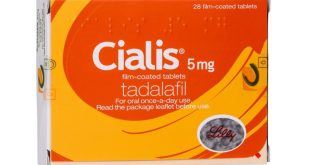1. Introduction to Psychological Factors and Muscle Pain
Defining Muscle Pain and Psychological Factors
Muscle pain, also known as myalgia, refers to discomfort or soreness in the muscles. Psychological factors encompass the mental and emotional aspects that can influence how we perceive and experience pain.
The Interplay Between Physical and Psychological Aspects of Pain
The relationship between physical and psychological factors in pain is intricate. Research shows that emotions, thoughts, and beliefs can impact the intensity and duration of muscle pain, highlighting the mind-body connection.
2. Understanding the Mind-Body Connection in Pain Perception
Neurobiological Basis of Pain Perception
Pain perception involves complex neurobiological processes in the brain and spinal cord. The brain evaluates sensory information and emotional responses, shaping our experience of pain.
Psychological Factors Influencing Pain Thresholds
Psychological factors such as stress, anxiety, and past experiences can alter pain thresholds. Positive emotions and coping strategies may raise pain thresholds, while negative emotions can lower them.

3. Impact of Stress and Emotional Factors on Muscle Pain
The Stress-Pain Connection: How Stress Affects Muscles
Stress triggers physiological responses in the body, leading to muscle tension and potential pain. Chronic stress can exacerbate muscle pain conditions, highlighting the importance of stress management.
Emotional States and Pain Severity in Musculoskeletal Disorders
Emotional states, including depression and anxiety, are linked to increased pain severity in musculoskeletal disorders. Addressing emotional well-being alongside physical symptoms is vital for comprehensive pain management.
4. Psychological Interventions for Managing Muscle Pain
Cognitive Strategies for Coping with Chronic Pain
Cognitive-behavioral techniques, such as reframing negative thoughts and mindfulness, can help individuals manage chronic muscle pain by altering their perception and response to discomfort.
Behavioral Techniques to Modify Pain Responses
Behavioral interventions, like relaxation techniques and gradual exposure therapy, aim to modify pain responses and improve overall function. These strategies empower individuals to take an active role in managing their muscle pain.

5. The Role of Cognitive Behavioral Therapy in Pain Management
Overview of Cognitive Behavioral Therapy (CBT) for Pain
Cognitive Behavioral Therapy (CBT) is like a therapist and a life coach teaming up to tackle your pain from both mental and physical angles. By helping you identify and change negative thought patterns and behaviors related to pain, CBT teaches you how to kick those unhelpful habits to the curb.
Evidence-Based Practices and Effectiveness of CBT in Pain Management
Research shows that CBT isn’t just another fad—it’s the real deal when it comes to managing pain. By empowering you with tools to cope with discomfort and improve your quality of life, CBT can be a game-changer in the battle against muscle pain.
6. Mindfulness and Relaxation Techniques for Alleviating Muscle Pain
Mindfulness-Based Interventions for Pain Relief
Ever tried to quiet the chatter in your mind while focusing on the present moment? That’s mindfulness, and it’s not just for yogis. By honing this skill, you can dial down muscle tension and crank up your pain tolerance.
Progressive Muscle Relaxation and Guided Imagery for Muscle Pain
Picture this: You’re on a mental vacation while your muscles unwind like a coiled spring. That’s the power of progressive muscle relaxation and guided imagery. By harnessing the mind-body connection, these techniques can help ease muscle pain and bring you some much-needed chill.
7. Addressing Trauma and Past Experiences in Chronic Muscle Pain
Understanding the Impact of Trauma on Pain Perception
Trauma can leave a lasting mark on both body and mind, turning up the volume on pain signals. By shining a light on how past experiences shape your pain perception, you can start untangling the knots that keep you stuck in discomfort.
Therapeutic Approaches for Resolving Trauma-Related Muscle Pain
It’s time to bid farewell to that unwanted guest called trauma. Therapeutic approaches like trauma-focused therapy can help you process and heal from past wounds, paving the way for a smoother road ahead when it comes to managing muscle pain.
8. Holistic Approaches to Treating Muscle Pain: Integrating Psychological and Physical Therapies
The Importance of Comprehensive Treatment Plans for Muscle Pain
Forget the one-size-fits-all approach—treating muscle pain requires a tag team of psychological and physical therapies. By combining forces, these holistic approaches can address pain from all angles, giving you a fighting chance at reclaiming your comfort.
Collaborative Care Models for Addressing Psychological and Physical Aspects of Pain
Think of collaborative care as a superhero squad assembled to tackle your muscle pain. By bringing together experts from various fields—like psychologists, physical therapists, and pain specialists—this approach ensures you get a customized treatment plan that covers all the bases.







